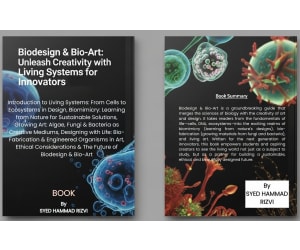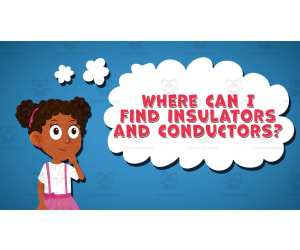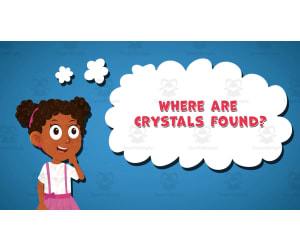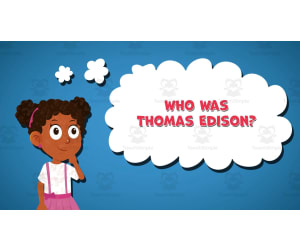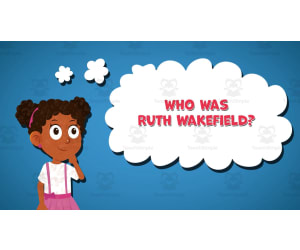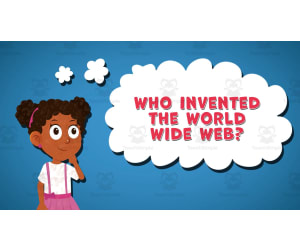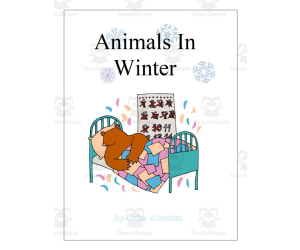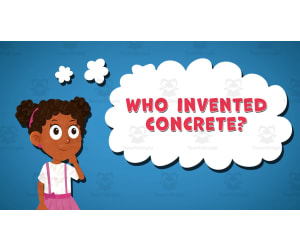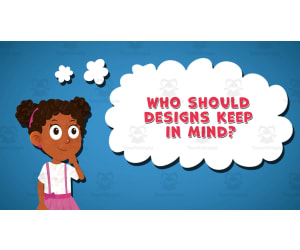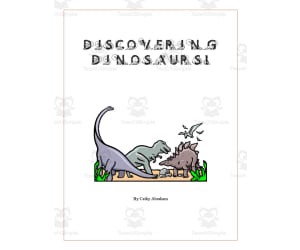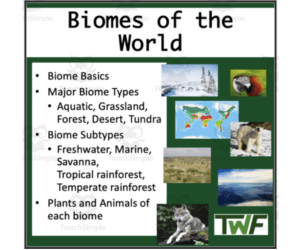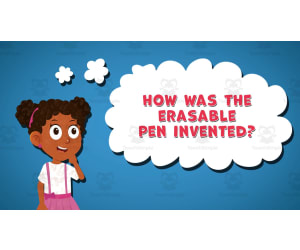2,469 products added recently
Basic Science Lesson Plans
Introduce your students to the wonders of science with these basic lesson plans that make fundamental concepts accessible. Designed to stimulate interest and encourage questioning, these resources cover essential topics through interactive activities. Use them to lay a strong foundation and ignite a lifelong passion for scientific exploration.
Pine Trees: Evergreens: Kindergarten Science Projects
ELA, Holiday & Seasonal, Reading, Reading Comprehension, Science, Life Sciences, Nature & Plants, Basic Science, Seasons, Winter, Preschool, Grade 1, Lesson Plans, Teacher Tools
Pine Trees: Evergreens: Kindergarten Science Projects This is a wonderful resource to help children learn about Pine Trees: Evergreens while developing their ability to comprehend what they are reading. This pack contains so many resources to help you plan and deliver a fantastic lesson that will captivate your pupils! The Pine Trees: evergreens Minin Thematic Unit Plan Full lesson notes to help you plan a child-centred lesson about Pine Trees and creatures that eat the seeds - which will help you teach the 'plants' element of most Science curricula including touching on food chains and how animals obtain their food from plants. Information you need in an easy-to-read format that you can also use with able pupils 3 differentiated decodable reading passages in both colour and black and white formats and on a PowerPoint 3 differentiated reading comprehension activities 3 differentiated pages to allow pupils to use given vocabulary to write about pine trees. 1 page to draw a cone and describe it 1 page to colour a Crossbill - identified as a bird that relies on pine seeds for its food. Photos/pictures to use during the lesson and/or for display afterwards 1 twenty-slide PowerPoint Flashcards 1 fun art activity The lesson plan includes: Aims and objectives for the lesson Key vocabulary to be learned A list of resources required to teach the lesson to make your preparation easy! Pointers to assess children's understanding of the subject Step-by-step outline of the lesson The decodable passages come in three levels: The first level is for children who have a very basic grasp of phonics. This sheet requires knowledge of the sounds: o-e, i-e, ow, ee- ea and the sight words: have, are, do and the. It uses mostly one-syllable words. The second sheet requires knowledge of the sound ay and ur as well as of sight words: because, know and come. It still uses mainly one-syllable words. The third sheet contains yet more text with more words of two-syllables requiring knowledge of alternative spelling patterns for basic sounds, e.g. ea - weather. Who is the Decodable Reading Comprehension Passages + Lesson Plan: Pine Trees for? Teachers Home educators But not exclusively!! Format: 1 PDF 30 pages 1 MS PowerPoint 19 slides
Author Lilibette's Resources
Rating
Tags Decodable Reading Comprehension, Science, Evergreens, Trees, Plants, Home-education., Winter, Seasons, Kindergarten Science Projects, Nature
Biodesign & Bio-Art Unleash Creativity with Living Systems for Innovat
Health, P.E. & Health, Mental Health, Physical Education, Basic Science, Science, Biology, Life Sciences, Human Body, Physics, Homeschool Curriculum, Grade 9, 10, 11, 12, Lesson Plans, Teacher Tools, Assessments, Workbooks, Worksheets & Printables, Presentations
Unlock the creative power of biology! “Biodesign & Bio-Art: Unleash Creativity with Living Systems for Innovators” is the ultimate resource for the next generation of biological and creative minds. With this book, students will no longer be passive recipients of knowledge; they will instead take an active part in the process of innovation. Paddle into the world of 80 fascinating chapters where the basics of life, such as cells, DNA, and biotic systems, are first introduced, followed by the fascinating applications of such knowledge through biomimetics, biomaterials, or living art. The students will be able to learn design concepts from nature, materials developed out of fungus or bacteria, genetics, and ethics. Chock-full of smart insights, practical case studies, and visionary project ideas, this volume is more than an educational textbook - it is a springboard that launches young scholars into their future careers in biodesign, synthetic biology, and more. This textbook is suitable and ideal for STEM and STEAM education as it encourages critical thinking, practical application, and an deep appreciation and respect for natural intelligence. Empower young minds with all the knowledge and inspiration needed to create their beautiful and sustainable world. Technical Features: 80 Chapters of core biology and innovative applications. Interdisciplinary Fusion: It seamlessly integrates biology, art, design, and engineering. Future-Focused Skills Biomimicry/Biofabrication/ Genetic Engineering/ Project-Based Learning It encourages project-based learning with algae, fungi, and bacteria, among many others. Appropriate for STEM/STEAM: Aligns with current learning outcomes for critical thinking and creativity. Why Parents & Schools Will Love It: Prepares for the Future: Beyond book memorization, the university will provide knowledge of applicable, interdisciplinary skills essential for the job market in areas such as biotechnology, sustainable design, and ecological engineering. Fosters Critical & Ethical Thinking: It not only describes how to manipulate life, but also goes in-depth on why and whether they should, as it strives to promote ethical thinking. Interests Varied Students: Exquisitely designed for both scientifically inclined and creatively inclined students, highlighting the need for both qualities in order to truly innovate. This is perfect for getting students who would otherwise be uninterested in a systemized subject. Aligned with Modern STEM/STEAM Objectives: It wholly supports education schemes combined with Science, Technology, Engineering, Art, and Mathematics learning and applications. Comprehensive & All-in-One Resource: touches on a vast range of topics—from cell biology to bio-art, making it a helpful textbook or supplement for a variety of lessons and pursuits. Student Audience Primary: High School Students, Grades 10-12 (ages 15-18). The sophistication of material, chapter organization, and conceptual difficulty (such as central dogma, ethics of genetic engineering) are precisely suited to highly advanced high school programs for biology and art. Secondary Level: Honors/AP level grade 9 students and first year college or university-level introductory courses for biology, bio-design, or Arts courses. Audience Niche: Targeting aspiring scientists, artists, designers, and any student looking at STEM/STEAM, environmental science, sustainable designs, biotechnology, conceptual art, and more. Copyright/Terms of Use "This Book is copyrighted by Syed Hammad Rizvi." "You may only use this resource personally, and within one classroom." "You are not permitted to change, distribute, or sell copies of parts or whole of this resource." In other words, "You are not permitted to put it on the internet where it can be downloaded." If you would like to share the resource within your school, you can purchase additional licenses from Teachers Pay Teachers. I appreciate you following these terms of use. This product is proudly brought to you by Syed Hammad Rizvi
Author Creative Book Store
Rating
Tags Biodesign, BioArt, STEMeducation, STEAMlearning, BiologyBook, ScienceArt, Biomimicry, BioFabrication, HomeschoolScience, HighSchoolBiology
Free Science Human Microbiome Vocabulary Interactive Review
Science, Life Sciences, Human Body, Basic Science, Grade 7, Teacher Tools, Lesson Plans
Human Microbiome Vocabulary Words to Review and Reinforce Definitions of the 7TH Grade Science curriculum . Students will learn and practice terms through definitions and characteristics. The engaging activity promotes collaboration and class discussion as students review terms definitions, and more with multiple visuals and learning formats like multiple choice questions, memory games, hang-man, and others. This versatile resource can be used for whole-group instruction, small-group practice, or independent work, just practice the words and then review them by choosing the correct one, it will self-correct you until you choose the correct answer Practice your Vocabulary with this Free Interactive Game Introduce young learners to a variety of visuals with this entertaining digital game. Students will see the names and images of different words and definitions; exercising visual memory and concentration. This self-checking activity can be played independently or as a whole class game projected on a smartboard. The vibrant slideshow stimulates engagement while building construction classification skills. students will build their knowledge of important terms and definitions while having fun playing games. This activity stimulates intelligence, builds concentration, reinforces letter recognition, improves spelling and pronunciation, and engagingly expands vocabulary. It's a perfect supplement for your lesson. Check our shop, material, and products for more interactive construction vocabulary reviews covering other topics like human microbiome, metabolism, and more grade levels in science and Spanish language arts. Download this versatile 32-slide PowerPoint today!
Author ShapeUp-N-Matematicas y Lenguaje
Tags SCIENCE, Human Microbiome, Bacteria, Infection, Microbiome , Microorganism, Cells, Antibiotic, Cell, Scientific Argument
I WONDER - Can Designs Change | Animated Video Lesson
Research, Theories, Basic Science, Science, STEM, Grade 6, 7, 8, 9, 10, 11, 12, Lesson Plans, Teacher Tools
Video Introduction An amazing video designed for the students to learn more about STEM. I WONDER - Can Designs Change | Animated Video Lesson Do you like STEM subjects? what is your favorite one? Have you ever tried to plant a seed? If yes, tell us more about it. Or have you ever tried to invent something? If yes, tell us more about it. And how do you think it will help us? Have you ever seen a microorganism under a microscope? What was it? And how it looked like? Mathematics is a marvelous subject. Let' sharpen our brains and solve some equations. Do you like timetable tricks? What is your favorite one? Do you know how to code? Have you ever created an app or a game before? If yes, how was it like? I WONDER - Can Designs Change | Animated Video Lesson The video is perfect for encouraging the researching skills for the students, while learning more about this fantastic topic. I WONDER - Can Designs Change | Animated Video Lesson This friendly designed video is suitable for students at school, homeschooling, and as a group activity. Format Available in MP4 format.
Author Educational Voice
Tags Can Designs Change, Can Designs Change Video, Designs, Designs Facts, Design, Designs Facts For Kids, Designs Video, Designs Video For Kids, Stem, Science
I WONDER - Where Can I Find Insulators And Conductors | Animated Video
Physics, Science, Chemistry, Basic Science, Grade 4, 5, 6, 7, 8, 9, 10, Lesson Plans, Teacher Tools
Video Introduction An amazing activity designed for the students to learn more about STEM. I WONDER - Where Can I Find Insulators And Conductors | Animated Video Lesson Do you like STEM subjects? what is your favorite one? Have you ever tried to plant a seed? If yes, tell us more about it. Or have you ever tried to invent something? If yes, tell us more about it. And how do you think it will help us? Have you ever seen a microorganism under a microscope? What was it? And how it looked like? Mathematics is a marvelous subject. Let' sharpen our brains and solve some equations. Do you like timetable tricks? What is your favorite one? Do you know how to code? Have you ever created an app or a game before? If yes, how was it like? I WONDER - Where Can I Find Insulators And Conductors | Animated Video Lesson The video is perfect for encouraging the researching skills for the students, while learning more about this fantastic topic. I WONDER - Where Can I Find Insulators And Conductors | Animated Video Lesson This friendly designed video is suitable for students at school, homeschooling, and as a group activity. Format Available in MP4 format.
Author Educational Voice
Tags Where Can I Find Insulators And Conductors, Where Can I Find Insulators And Conductors Video, Insulators, Insulators Facts, Insulators Facts For Kids, Insulators Video For Kids, Conductors, Conductors Video For Kids
I WONDER - Where Can Crystals Be Found | Animated Video Lesson
Basic Science, Science, Earth and Environmental Sciences, Earth Sciences, Grade 6, 7, 8, 9, 10, 11, 12, Lesson Plans, Teacher Tools
Video Introduction An amazing activity designed for the students to learn more about STEM. I WONDER - Where Can Crystals Be Found | Animated Video Lesson Do you like STEM subjects? what is your favorite one? Have you ever tried to plant a seed? If yes, tell us more about it. Or have you ever tried to invent something? If yes, tell us more about it. And how do you think it will help us? Have you ever seen a microorganism under a microscope? What was it? And how it looked like? Mathematics is a marvelous subject. Let' sharpen our brains and solve some equations. Do you like timetable tricks? What is your favorite one? Do you know how to code? Have you ever created an app or a game before? If yes, how was it like? I WONDER - Where Can Crystals Be Found | Animated Video Lesson The video is perfect for encouraging the researching skills for the students, while learning more about this fantastic topic. I WONDER - Where Can Crystals Be Found | Animated Video Lesson This friendly designed video is suitable for students at school, homeschooling, and as a group activity. Format Available in MP4 format.
Author Educational Voice
Tags Where Can Crystals Be Found, Where Can Crystals Be Found Video, Crystals, Crystals Facts, Crystals Facts For Kids, Crystals Video, Crystals Facts Video, Crystals Video For Kids, Science, Science Video
I WONDER - What Did Albert Einstein Win A Nobel Prize For
Biographies, Social Studies, Inventors, Basic Science, Science, Grade 4, 5, 6, 7, 8, 9, 10, Lesson Plans, Teacher Tools
Video Introduction An amazing video designed for the students to learn more about famous people in different countries. I WONDER - What Did Albert Einstein Win A Nobel Prize For | Animated Video Lesson Do you know this person? How much do you know about him/her? Who is your idol? Why did you choose this person? Tell us more about him/her? Who is your favorite athlete? Or what is your favorite team? Have you recently heard a story about a famous person? Who was this person? Can you tell us more about him/her. Who is your favorite president, king, or queen? Why you chose that person? In your country, who are the most famous people? What did they do? Can you tell us more about them. What is your favorite invention? Who invented it? Who is your favorite artist? What is the most famous thing he/she have done? What is the most enjoyable you have read before? Who wrote it? I WONDER - What Did Albert Einstein Win A Nobel Prize For | Animated Video Lesson The video is perfect for encouraging the researching skills for the students, while learning more about this fantastic place. I WONDER - What Did Albert Einstein Win A Nobel Prize For | Animated Video Lesson This friendly designed video is suitable for students at school, homeschooling, and as a group activity. Format Available in MP4 format.
Author Educational Voice
Rating
Tags What Did Albert Einstein Win A Nobel Prize For, What Did Albert Einstein Win A Nobel Prize For Video, Albert Einstein Win A Nobel Prize, Albert Einstein Facts, Albert Einstein, Albert Einstein Video, Albert Einstein Video For Kids
I WONDER - Who Was Thomas Edison | Animated Video Lesson
Biographies, Social Studies, Inventors, Basic Science, Science, Grade 4, 5, 6, 7, 8, 9, 10, Lesson Plans, Teacher Tools
Video Introduction An amazing video designed for the students to learn more about famous people in different countries. I WONDER - Who Was Thomas Edison | Animated Video Lesson Do you know this person? How much do you know about him/her? Who is your idol? Why did you choose this person? Tell us more about him/her? Who is your favorite athlete? Or what is your favorite team? Have you recently heard a story about a famous person? Who was this person? Can you tell us more about him/her. Who is your favorite president, king, or queen? Why you chose that person? In your country, who are the most famous people? What did they do? Can you tell us more about them. What is your favorite invention? Who invented it? Who is your favorite artist? What is the most famous thing he/she have done? What is the most enjoyable you have read before? Who wrote it? I WONDER - Who Was Thomas Edison | Animated Video Lesson The video is perfect for encouraging the researching skills for the students, while learning more about this fantastic place. I WONDER - Who Was Thomas Edison | Animated Video Lesson This friendly designed video is suitable for students at school, homeschooling, and as a group activity. Format Available in MP4 format.
Author Educational Voice
Rating
Tags Who Was Thomas Edison, Who Was Thomas Edison Video, Thomas Edison, Thomas Edison Video, Thomas Edison Facts, Thomas Edison Video For Kids, Thomas Edison Facts For Kids, Thomas Edison Inventions
I WONDER - When Was The TV Remote Control Invented | Animated Video
Inventors, Basic Science, Science, Technology, STEM, Grade 4, 5, 6, 7, 8, 9, 10, Lesson Plans, Teacher Tools
Video Introduction An amazing activity designed for the students to learn more about STEM. I WONDER - When Was The TV Remote Control Invented | Animated Video Lesson Do you like STEM subjects? what is your favorite one? Have you ever tried to plant a seed? If yes, tell us more about it. Or have you ever tried to invent something? If yes, tell us more about it. And how do you think it will help us? Have you ever seen a microorganism under a microscope? What was it? And how it looked like? Mathematics is a marvelous subject. Let' sharpen our brains and solve some equations. Do you like timetable tricks? What is your favorite one? Do you know how to code? Have you ever created an app or a game before? If yes, how was it like? I WONDER - When Was The TV Remote Control Invented | Animated Video Lesson The video is perfect for encouraging the researching skills for the students, while learning more about this fantastic topic. I WONDER - When Was The TV Remote Control Invented | Animated Video Lesson This friendly designed video is suitable for students at school, homeschooling, and as a group activity. Format Available in MP4 format.
Author Educational Voice
Tags When Was The TV Remote Control Invented, When Was The TV Remote Control Invented Video, TV Remote Control, TV Remote Control Facts, TV Remote Control Facts For Kids, TV Remote Control Video
I WONDER - Who Was Ruth Wakefield | Animated Video Lesson
Biographies, Social Studies, Inventors, Basic Science, Science, Grade 4, 5, 6, 7, 8, 9, 10, Lesson Plans, Teacher Tools
Video Introduction An amazing video designed for the students to learn more about famous people in different countries. I WONDER - Who Was Ruth Wakefield | Animated Video Lesson Do you know this person? How much do you know about him/her? Who is your idol? Why did you choose this person? Tell us more about him/her? Who is your favorite athlete? Or what is your favorite team? Have you recently heard a story about a famous person? Who was this person? Can you tell us more about him/her. Who is your favorite president, king, or queen? Why you chose that person? In your country, who are the most famous people? What did they do? Can you tell us more about them. What is your favorite invention? Who invented it? Who is your favorite artist? What is the most famous thing he/she have done? What is the most enjoyable you have read before? Who wrote it? I WONDER - Who Was Ruth Wakefield | Animated Video Lesson The video is perfect for encouraging the researching skills for the students, while learning more about this fantastic place. I WONDER - Who Was Ruth Wakefield | Animated Video Lesson This friendly designed video is suitable for students at school, homeschooling, and as a group activity. Format Available in MP4 format.
Author Educational Voice
Rating
Tags Who Was Ruth Wakefield, Who Was Ruth Wakefield Video, Ruth Wakefield, Ruth Wakefield Facts, Ruth Wakefield Video, Ruth Wakefield Video For Kids, Ruth Wakefield Facts For Kids, Cookies
I WONDER - Are All Metals Conductors | Animated Video Lesson
Basic Science, Science, Chemistry, Physics, Grade 4, 5, 6, 7, 8, 9, 10, Lesson Plans, Teacher Tools
Video Introduction An amazing activity designed for the students to learn more about STEM. I WONDER - Are All Metals Conductors | Animated Video Lesson Do you like STEM subjects? what is your favorite one? Have you ever tried to plant a seed? If yes, tell us more about it. Or have you ever tried to invent something? If yes, tell us more about it. And how do you think it will help us? Have you ever seen a microorganism under a microscope? What was it? And how it looked like? Mathematics is a marvelous subject. Let' sharpen our brains and solve some equations. Do you like timetable tricks? What is your favorite one? Do you know how to code? Have you ever created an app or a game before? If yes, how was it like? I WONDER - Are All Metals Conductors | Animated Video Lesson The video is perfect for encouraging the researching skills for the students, while learning more about this fantastic topic. I WONDER - Are All Metals Conductors | Animated Video Lesson This friendly designed video is suitable for students at school, homeschooling, and as a group activity. Format Available in MP4 format.
Author Educational Voice
Tags Are All Metals Conductors, Are All Metals Conductors Video, Conductors, Conductors Facts, Conductors Facts For Kids, Conductors Video, Conductors Video For Kids, Metals, Metals Facts
I WONDER - Was Stephen Hawkins A Good Teacher | Animated Video Lesson
Inventors, Basic Science, Science, Biographies, Social Studies, Grade 4, 5, 6, 7, 8, 9, 10, Lesson Plans, Teacher Tools
Video Introduction An amazing video designed for the students to learn more about famous people in different countries. I WONDER - Was Stephen Hawkins A Good Teacher | Animated Video Lesson What do you know about Stephen Hawking? Can you tell us five five facts about him? Was Stephen Hawking always good at school? Was Stephen Hawkins adventurous? Was Stephen Hawkins a good teacher? What did Stephen Hawking discover? When was Stephen Hawking diagnosed with ALS? What do you know about black holes? And what did Stephen Hawkins discovered about them? I WONDER - Was Stephen Hawkins A Good Teacher | Animated Video Lesson The video is perfect for encouraging the researching skills for the students, while learning more about this fantastic place. I WONDER - Was Stephen Hawkins A Good Teacher | Animated Video Lesson This friendly designed video is suitable for students at school, homeschooling, and as a group activity. Format Available in MP4 format.
Author Educational Voice
Rating
Tags Was Stephen Hawkins A Good Teacher, Stephen Hawkins, Stephen Hawkins Facts, Stephen Hawkins Video, Stephen Hawkins Facts For Kids, Stephen Hawkins Video For Kids, Famous People, Famous People Video
Free Science Plates in Motion Interactive Vocabulary Review Activity
Science, Basic Science, Earth and Environmental Sciences, Earth Sciences, Environmental Science, Grade 7, Teacher Tools, Lesson Plans
Science 7th Grade Plates in Motion Vocabulary Review Reinforce plate tectonics concepts with this interactive 7th grade science vocabulary review! Students will learn key terms about plates in motion through definitions and characteristics. The engaging activity promotes collaboration and class discussion as students review terms like convergent boundary, transform boundary, and more. With multiple visuals and learning formats like multiple choice questions, this versatile resource can be used for whole group instruction, small group practice, or independent work. Check our shop for more 7th grade interactive science vocabulary reviews covering topics like human microbiome, metabolism, and more grade levels in science and Spanish language arts. This 1-page PowerPoint includes 41 slides.
Author ShapeUp-N-Matematicas y Lenguaje
Tags Plates In Motion, Earthquake, Eruption, Volcanic Activity, Geiser, Landform, Trench, Small Or Whole Group, Interactive Activity, Games
I WONDER - Who Invented The World Wide Web | Animated Video Lesson
Biographies, Social Studies, Inventors, Basic Science, Science, Grade 4, 5, 6, 7, 8, 9, 10, Lesson Plans, Teacher Tools
Video Introduction An amazing video designed for the students to learn more about famous people in different countries. I WONDER - Who Invented The World Wide Web | Animated Video Lesson Do you know this person? How much do you know about him/her? Who is your idol? Why did you choose this person? Tell us more about him/her? Who is your favorite athlete? Or what is your favorite team? Have you recently heard a story about a famous person? Who was this person? Can you tell us more about him/her. Who is your favorite president, king, or queen? Why you chose that person? In your country, who are the most famous people? What did they do? Can you tell us more about them. What is your favorite invention? Who invented it? Who is your favorite artist? What is the most famous thing he/she have done? What is the most enjoyable you have read before? Who wrote it? I WONDER - Who Invented The World Wide Web | Animated Video Lesson The video is perfect for encouraging the researching skills for the students, while learning more about this fantastic place. I WONDER - Who Invented The World Wide Web | Animated Video Lesson This friendly designed video is suitable for students at school, homeschooling, and as a group activity. Format Available in MP4 format.
Author Educational Voice
Rating
Tags Who Invented The World Wide Web, Who Invented The World Wide Web Video, The World Wide Web, Sir Tim Berners-Lee, Sir Tim Berners-Lee Video, Sir Tim Berners-Lee Facts, Sir Tim Berners-Lee Video For Kids
Measurement and Classification
Science, Basic Science, Grade 5, Teacher Tools, Lesson Plans
Measurement and Classification Teaching Resource - Grade 5 Measurement and Classification is a comprehensive teaching resource specifically constructed with a focus on basic science for grade 5 students. This product not only supports teachers in shaping engaging lessons but also encourages learners to delve deeper into the world of science, cultivating their analytical thinking and problem-solving skills. The Concept of Classification This detailed lesson plan starts by introducing students to the concept of classification. It encourages young minds to comprehend categorizing objects, plants, and animals according to unique characteristics. This interactive section paves the way for students to understand how grouping items based on commonalities helps bring order and understanding. An Exploration of Bar Graphs We then seamlessly transition into an exploration of bar graphs. Here, learners will get hands-on experience with: Data collection followed by charting this data using bar graphs—pivotal tools in obtaining scientific conclusions accurately displayed visually. Answering queries about collected data relying primarily on their plotted bar graph—a significant skill in analytical interpretation. The Understanding of Physical Properties & Materials The educational journey continues through delving into physical properties of materials where identifiers such as texture, color or flexibility influence classification decisions. Students engage in sorting a variety of objects according to these salient physical properties providing an interactive understanding towards material characteristic identification. Diving Deep Into Measurements The finale involves demystifying measurements—an essential skill not confined solely within scientific boundaries but forming an integral part across real-life scenarios too! The resource guides learners into comprehending various units from length and mass up till volume best measured using predefined tools like rulers or graduated cylinders—it all dives down here! Additionally setting a strong foundation about standardized measures’ importance because consistency matters when it comes down comparing or estimating quantities overall! Thus exemplifying its utility across different learning setups whether a whole class session, small group interaction even extending down towards homework assignments as well! An ideal choice for both public school teachers focused on ensuring standard-compliant lessons or homeschooling parents eager pollutants imbibe comprehensive knowledge among kids practically intertwined thoroughly around everyday life situations. Resource Format This PDF format file contains everything that educators need to pursue fun-filled, knowledge-packed science lessons covering measurement and classification in depth. Get ready for interactive, engaging classroom experiences rooting deep within students’ minds effectively making "science" their favorite subject!
Author Classroom Complete Press
Tags PDF
Animals in Winter Curriculum Pack
ELA, Math, Early Math, Language Development, Vocabulary, Science, Basic Science, Kindergarten, Lesson Plans, Teacher Tools
If your students are studying hibernation or are about to begin an animal unit, I have just the resource to provide you with everything you need and more! This is an Animals in Winter Curriculum Pack complete with an abundance of printable resources and engaging activities for students to complete. This curriculum was designed for your preschool students. The curriculum goal is to present the concept of hibernation, and how various animals live and survive during the winter and adapt to seasonal changes. The vocabulary that students will focus on is hibernation, cave, migrate, South, climate, Artic, dormant, mammal, and torpor. This curriculum will come with a letter of the week (B) and a color of the week (gray). This curriculum pack includes: --Sensory Table Ideas --Art Activities --Cooking Experience --Community Time --Math Activities --Home/School Connection Ideas --Science Table Enrichments --Science Concepts/Activities --Prop Box Ideas/Dramatic Play Enrichments --Movement and Motor --Playground/Walk Activities --Transition/Waiting Ideas --Block Area Enrichments --Flannel Board --Teacher Made Enrichment Ideas --Field Trip Ideas --Supplemental Learning Ideas/Activities At the start of this pack, you will receive a list of supplies needed for activities and projects. The worksheets, activities, and tasks included in this pack are intended to be completed in a variety of formats – whole group, small group, and independent work. I hope you enjoy! I can be contacted for questions and concerns at childcarediva@aol.com .
Author Learning Foundations
Tags Animals In Winter, Reading Curriculum, Math Curriculum, Language Arts, Sensory Tables, Field Trip Ideas, Hibernation, Vocabulary, Dramatic Play
I WONDER - Who Invented Concrete | Animated Video Lesson
History: Europe, History, Social Studies, History: Ancient, Inventors, Basic Science, Science, Grade 5, 6, 7, 8, 9, 10, 11, Lesson Plans, Teacher Tools
Video Introduction An amazing video designed for the students to learn more about history. I WONDER - Who Invented Concrete | Animated Video Lesson Do you like history? Which topic do you really enjoy about history? Have you ever read an interesting fact about the Vikings? If yes, can you mention them? What do you like most about the Victorian era? Can you name all the Tudors? Have you ever wondered how people used to live in ancient Japan and ancient China? Do you know any interesting facts about ancient Egyptians and the Pharaohs? Have you ever visited South America? What do you know about Incas and Aztecs? Celtic culture was really one of a kind, can you name any of the places that Celts used to live in? Imagine yourself living during the ancient Roman empire, how your life will look like? Ancient Greece was an amazing place to live in. What do you know about ancient Greek life? I WONDER - Who Invented Concrete | Animated Video Lesson The video is perfect for encouraging the researching skills for the students, while learning more about history. I WONDER - Who Invented Concrete | Animated Video Lesson This friendly designed video is suitable for students at school, homeschooling, and as a group activity. Format Available in MP4 format.
Author Educational Voice
Tags Who Invented Concrete, Who Invented Concrete Video, Concrete, Concrete Facts, Concrete Invention, History Of Concrete, Concrete Facts For Kids, History Of Concrete Facts, History Of Concrete Video
Free Science Force N Motion Vocabulary Interactive Review
Science, Basic Science, Earth and Environmental Sciences, Environmental Science, Physics, Grade 8, Teacher Tools, Lesson Plans
Force N Motion Vocabulary Words to Review and Reinforce Definitions of the 8TH Grade Science curriculum . Students will learn and practice terms through definitions and characteristics. The engaging activity promotes collaboration and class discussion as students review terms definitions, and more with multiple visuals and learning formats like multiple choice questions, memory games, hang-man, and others. This versatile resource can be used for whole-group instruction, small-group practice, or independent work, just practice the words and then review them by choosing the correct one, it will self-correct you until you choose the correct answer Practice your Vocabulary with this Free Interactive Game Introduce young learners to a variety of visuals with this entertaining digital game. Students will see the names and images of different words and definitions; exercising visual memory and concentration. This self-checking activity can be played independently or as a whole class game projected on a smartboard. The vibrant slideshow stimulates engagement while building construction classification skills. students will build their knowledge of important terms and definitions while having fun playing games. This activity stimulates intelligence, builds concentration, reinforces letter recognition, improves spelling and pronunciation, and engagingly expands vocabulary. It's a perfect supplement for your lesson. Check our shop, material, and products for more interactive construction vocabulary reviews covering other topics like human microbiome, metabolism, and more grade levels in science and Spanish language arts. Download this versatile 33-slide PowerPoint today!
Author ShapeUp-N-Matematicas y Lenguaje
Tags SCIENCE, Force, Friction, Kinetic Energy, Cause, Effect, Velocity, Speed, Force And Motion, Motion
I WONDER - Was Stephen Hawking Always Good At School | Animated Video
Biographies, Social Studies, Inventors, Basic Science, Science, Grade 4, 5, 6, 7, 8, 9, 10, Lesson Plans, Teacher Tools
Video Introduction An amazing video designed for the students to learn more about famous people in different countries. I WONDER - Was Stephen Hawking Always Good At School | Animated Video Lesson What do you know about Stephen Hawking? Can you tell us five five facts about him? Was Stephen Hawking always good at school? Was Stephen Hawkins adventurous? Was Stephen Hawkins a good teacher? What did Stephen Hawking discover? When was Stephen Hawking diagnosed with ALS? What do you know about black holes? I WONDER - Was Stephen Hawking Always Good At School | Animated Video Lesson The video is perfect for encouraging the researching skills for the students, while learning more about this fantastic place. I WONDER - Was Stephen Hawking Always Good At School | Animated Video Lesson This friendly designed video is suitable for students at school, homeschooling, and as a group activity. Format Available in MP4 format.
Author Educational Voice
Rating
Tags Was Stephen Hawking Always Good At School, Stephen Hawking, Stephen Hawking Facts, Stephen Hawking Video, Stephen Hawking Facts For Kids, Stephen Hawking Video For Kids, Famous People
Classification & Adaptation Gr. 5-8
Science, Basic Science, Grade 5, 6, 7, 8, Teacher Tools, Lesson Plans
Classification & Adaptation Gr. 5-8 Introducing a comprehensive teaching tool that offers an exploration into ecosystems and living creatures. Ideal for Grades 5 through 8 Science classes, it delves into critical science concepts. The Importance of Classification This programme first delves into the process of classification, explaining why we classify organisms. It dives deep into various taxonomic categories such as Kingdom, Phylum, Class, Family, Genus, and Species. The differences between warm-blooded and cold-blooded animals are also addressed. The World of Vertebrates and Invertebrates An exciting task awaits students with them designing a brochure based on their favourite vertebrate before inventively creating an invertebrate species of their own! Surviving Through Adaptation A core concept in science, adaptation is deemed important and given focus on how environment influences animal changes thus ensuring survival across generations. To understand this better, a case study looking into Koala adaptations over time makes learning more relatable with actual examples. Observations about evolution are not ignored either. Later sections employ resources like crosswords, word searches for interactive learning while comprehension quizzes paired with answer keys help assess understanding. This versatile resource can be tailored for group-based activities or individualized assignments. Additionally its usefulness is not limited to classrooms but extends to homeschooling scenarios too as every learning environment deserves access to quality tools like this programme! It aligns perfectly with Next Generation Science Standards; alongside adherence to Bloom's Taxonomy and STEAM principles. Beyond imparting knowledge it also stokes curiosity and inspires creativity among young aspiring scientists. The resource is available as an easily accessible PDF file.
Author Classroom Complete Press
Tags PDF
I WONDER - Who Should Designs Keep In Mind | Animated Video Lesson
Theories, Basic Science, Science, Research, STEM, Grade 6, 7, 8, 9, 10, 11, 12, Lesson Plans, Teacher Tools
Video Introduction An amazing video designed for the students to learn more about STEM. I WONDER - Who Should Designs Keep In Mind | Animated Video Lesson Do you like STEM subjects? what is your favorite one? Have you ever tried to plant a seed? If yes, tell us more about it. Or have you ever tried to invent something? If yes, tell us more about it. And how do you think it will help us? Have you ever seen a microorganism under a microscope? What was it? And how it looked like? Mathematics is a marvelous subject. Let' sharpen our brains and solve some equations. Do you like timetable tricks? What is your favorite one? Do you know how to code? Have you ever created an app or a game before? If yes, how was it like? I WONDER - Who Should Designs Keep In Mind | Animated Video Lesson The video is perfect for encouraging the researching skills for the students, while learning more about this fantastic topic. I WONDER - Who Should Designs Keep In Mind | Animated Video Lesson This friendly designed video is suitable for students at school, homeschooling, and as a group activity. Format Available in MP4 format.
Author Educational Voice
Tags Who Should Designs Keep In Mind, Who Should Designs Keep In Mind Video, Designs, Design, Designs Facts, Scientific Design, Scientific Design Video, Scientific Design For Kids, Scientific Design Skill
Discovering Dinosaurs Curriculum Pack
Creative Arts, Art, Social Studies, ELA, Language Development, Vocabulary, Math, Early Math, Science, Basic Science, Kindergarten, Lesson Plans, Teacher Tools
If your students are studying dinosaurs or are about to begin an animal unit, I have just the resource to provide you with everything you need and more! This is a Discovering Dinosaurs Curriculum Pack complete with an abundance of printable resources and engaging activities for students to complete. This curriculum was designed for your preschool students. The curriculum goal is to expand children’s knowledge base on the topic of prehistoric life, and assist in enhancing the abstract thought process, while encouraging imagination. The vocabulary that students will focus on is prehistoric, dinosaurs, carnivorous, stegosaurus, T – Rex, Brachiosaurus, herbivore, Brontosaurus, Pterodactyl, extinct, paleontologist, fossil, and triceratops. This curriculum will come with colors of the week (green and brown) and a letter of the week (D). This curriculum pack includes: --Sensory Table Ideas --Art Activities --Cooking Experience --Community Time --Math Activities --Home/School Connection Ideas --Science Table Enrichments --Science Concepts/Activities --Prop Box Ideas/Dramatic Play Enrichments --Movement and Motor --Playground/Walk Activities --Transition/Waiting Ideas --Block Area Enrichments --Flannel Board --Teacher Made Enrichment Ideas --Field Trip Ideas --Supplemental Learning Ideas/Activities At the start of this pack, you will receive a list of supplies needed for activities and projects. The worksheets, activities, and tasks included in this pack are intended to be completed in a variety of formats – whole group, small group, and independent work. I hope you enjoy!
Author Learning Foundations
Tags Dinosaurs, Science Vocabulary, Preschool, Reading Curriculum, Prehistoric Life, Animal Unit, Sensory Table, Art Activities, Learning Goals
Lesson on Biomes of the Earth
Science, Life Sciences, Nature & Plants, Basic Science, Earth and Environmental Sciences, Environmental Science, Biology, Earth Sciences, Grade 6, 7, 8, 9, Teacher Tools, Lesson Plans
Lesson on Biomes of the Earth For educators who aim to provide their students with a comprehensive understanding of the world's diverse biomes, this Lesson on Biomes of the Earth package is a valuable asset. Tailored for both public school teachers and homeschoolers, the content delves deep into the intricacies of various biomes, offering both foundational knowledge and detailed specifics. This ecology lesson is designed to be both informative and enjoyable. It navigates through fundamental aspects of biomes, presenting them in an organized sequence: Basics of Biomes Key Biome Categories: Aquatic Grassland Forest Desert Tundra Delving Deeper: Biome Subtypes: Freshwater Marine Savanna Tropical Rainforest Temperate Rainforest An Overview of Plants and Animals Unique to Each Biome To enhance the teaching and learning experience, this Lesson on Biomes of the Earth package provides: A dedicated version of the presentation for educators A student-friendly version of the presentation, which incorporates multiple blanks. These blanks serve as interactive spots for students to fill in as the lesson progresses, ensuring they remain attentive and involved. For educators, these blanks are conveniently bolded and underlined, making guidance smooth and effective. A set of SIX videos, seamlessly integrated into the presentation, enriching the learning journey. A straightforward, auto-graded Exit Ticket and an additional quiz, complemented by a handy answer key. A structured student lesson handout, simplifying note-taking and information assimilation. Through this approach, where students don't jot down every single detail, there's more room for fruitful discussions, inquiries, and interactive activities. It strikes a balance between active learning and meaningful discussions, making the process of understanding biomes both thorough and enjoyable. ----------------------------------------------- Google and Distance Learning Ready This lesson includes both Office and Google formats for ALL resources. The presentation is in PowerPoint and Google Slides while all documents contain Word and Google Doc versions. Your resource is perfect for distance learning and integrates seamlessly with Google Classroom as I've included a link that will automatically create a copy of the resources and put them directly into your Google Drive with one click. Download--> Open --> Click --> Assign to your students Having both options allows you to use either without worrying about formatting issues as all the work has already been done for you. It safeguards you in case your department or school decides to go Google 100% and allows you as well as your students to access everything no matter where you are or what kind of equipment is being used. Exit Ticket Included in your package is an Exit Ticket which can be directly accessed from the last Google Slide . Additionally, your purchase will create a copy of the Google Form Exit Ticket which you can edit to meet your class needs. Also, please visit my blog Teach With Fergy for my thoughts on teaching, learning, and everything in between.
Author Teach With Fergy
Tags Biomes, Earth Science
I WONDER - How Was The Erasable Pen Invented | Animated Video Lesson
History: World, History, Social Studies, History: USA, History: Europe, Inventors, Basic Science, Science, Grade 4, 5, 6, 7, 8, 9, 10, Lesson Plans, Teacher Tools
Video Introduction An amazing video designed for the students to learn more about history. I WONDER - How Was The Erasable Pen Invented | Animated Video Lesson Do you like history? Which topic do you really enjoy about history? Have you ever read an interesting fact about the Vikings? If yes, can you mention them? What do you like most about the Victorian era? Can you name all the Tudors? Have you ever wondered how people used to live in ancient Japan and ancient China? Do you know any interesting facts about ancient Egyptians and the Pharaohs? Have you ever visited South America? What do you know about Incas and Aztecs? Celtic culture was really one of a kind, can you name any of the places that Celts used to live in? Imagine yourself living during the ancient Roman empire, how your life will look like? Ancient Greece was an amazing place to live in. What do you know about ancient Greek life? I WONDER - How Was The Erasable Pen Invented | Animated Video Lesson The video is perfect for encouraging the researching skills for the students, while learning more about history. I WONDER - How Was The Erasable Pen Invented | Animated Video Lesson This friendly designed video is suitable for students at school, homeschooling, and as a group activity. Format Available in MP4 format.
Author Educational Voice
Tags How Was The Erasable Pen Invented, How Was The Erasable Pen Invented Video, The Erasable Pen, The Erasable Pen History, The Erasable Pen History Facts, The Erasable Pen History Video, The Erasable Pen Historyvideo For Kids



